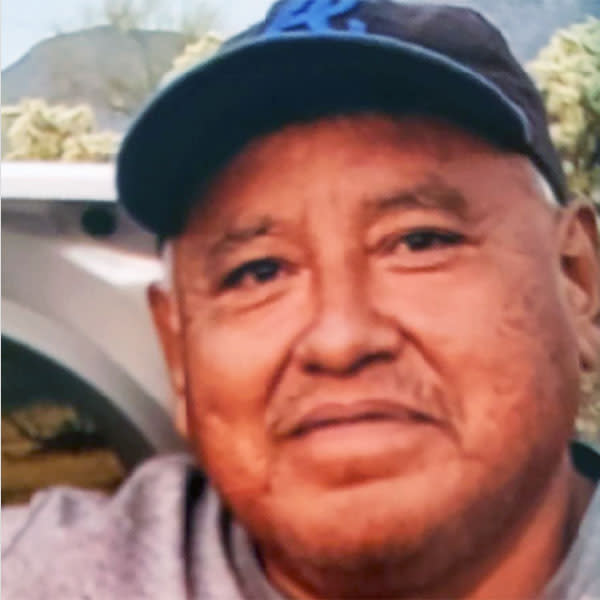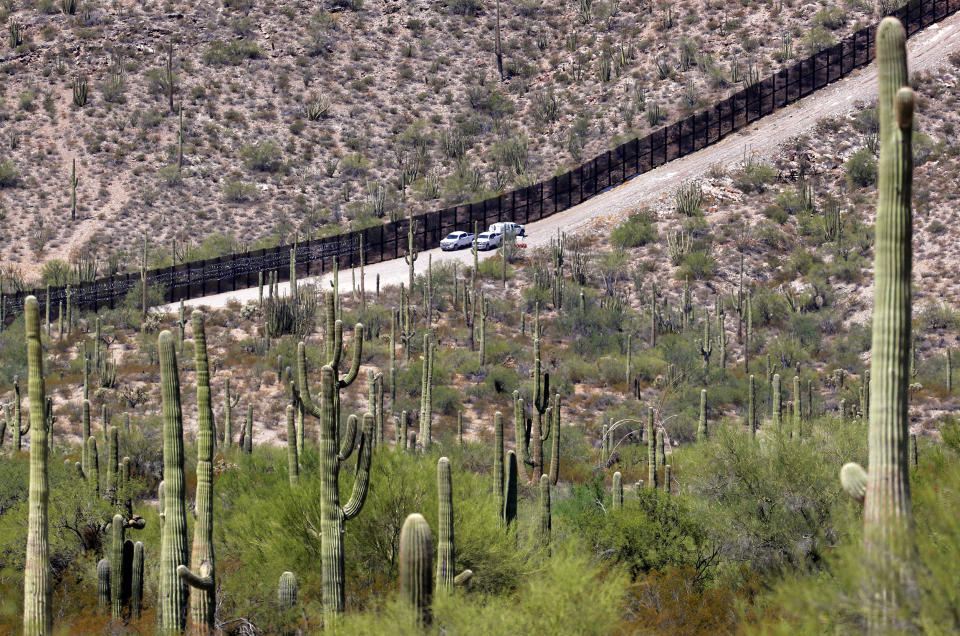Relatives want to know why the Border Patrol killed a man in Arizona
A relative of a Native American man who was killed by Border Patrol agents near the Arizona-Mexico border two weeks ago said she was talking to him moments before he was shot and he told her he had contacted the Border Patrol earlier in the evening to ask for help.
But the relative said none of the law enforcement agencies investigating the May 18 shooting death of Raymond Mattia has asked her or any other family members for information, and Customs and Border Protection’s official statement about the incident makes no mention of a call from Mattia.
The relative said that she has been pressing law enforcement for information about the shooting since it happened, without success — and that the family was not even allowed to approach his body for hours. “I asked that night: ‘We want to talk to someone. What happened to Ray? We need answers,’” said the relative, who preferred to remain anonymous for fear of retaliation by law enforcement.

Now she wants to know: “Why did the Border Patrol run into the yard instead of assessing? Why were there so many gunshots? Why didn’t you try talking to Ray?”
According to the relative, who lives close to Mattia’s house, Mattia regularly called the Border Patrol to report migrants crossing his property on Tohono O’odham Nation tribal land. The 4,000-square-mile reservation in the desert west of Tucson shares a long border with Mexico. The relative said the Border Patrol had frequent interactions with him.
The relative said that if she were contacted by the FBI or Customs and Border Protection’s Office of Professional Responsibility, two federal entities investigating the shooting, she would tell investigators that around 6 p.m. on May 18, Mattia told her he had called the Border Patrol to complain about three undocumented migrants who had entered his home and asked to use his telephone and bathroom.
More than three hours later, she said, she and Mattia were talking on the phone again when Border Patrol vehicles raced into his yard. He believed they were responding to his call and told her he would go talk to them.
He hung up, she said, and then she heard gunshots.
A statement about the incident from CBP makes no mention of the alleged earlier call from Mattia. Instead, it says the Border Patrol agents were assisting Tohono O’odham tribal police to respond to a “shots fired call.”
The discrepancy may explain why Mattia went out of his house to meet the agents, thinking they were responding to his earlier request, while the agents, according to CBP’s statement, “spread out to search for the man.”
The statement said CBP’s Office of Professional Responsibility has reviewed video taken from body cameras worn on the agents and deciphered that Mattia threw an object at the agents, which landed a few feet away from them, and “abruptly extended his right arm,” causing them to shoot.
According to Mattia’s relative, she was not aware of any shots fired in the area that evening before the Border Patrol and tribal police arrived.

She said there is no electricity at Mattia's home, making visibility for law enforcement officers difficult at 9:35 p.m. The relative also said the object Mattia threw may have been his cellphone, because he had just ended his call with her when he approached the agents.
Neither CBP nor the FBI, which oversees all shooting investigations on tribal land, have said what Mattia threw. They did not respond to a request for comment about why none of the relatives have been interviewed, when the body camera video would be made public or whether the Border Patrol knew whether Mattia had made a call to them earlier in the day before they arrived at his house.
The incident may further corrode trust between the Border Patrol and the Tohono O’odham Nation.
“My uncle didn’t deserve to die like this,” Yvonne Nevarez, Mattia’s niece, told The Arizona Republic. “After this happened, we feel like we can’t trust [the Border Patrol] to come when there’s issues.”
According to Mattia’s relative, who rushed to the site of the shooting, a Tohono O’odham police officer blocked family members from seeing his body. She said that the officer told them to go home but that the family members told the officers they needed to stay with their brother and bless his body. She said they did not see Mattia until he was in a body bag on his way to the medical examiner. The Tohono O’odham Police Department did not respond to a request for comment about why the family was blocked from seeing Mattia.
“We said our goodbyes while he was in a body bag,” the relative said. “The elders said it was very disrespectful.”
The next morning, the relative said, all the crime scene tape around Mattia’s house had been removed, but no law enforcement officers or agents came to speak with the family about what happened.
“It looked like the whole investigation was over,” the relative said. “But no one ever came to talk to us.”
Last weekend, the family organized two protests outside Border Patrol stations in Tucson and near the Tohono O’odham Nation Reservation to demand answers about Mattia’s death.
This article was originally published on NBCNews.com

